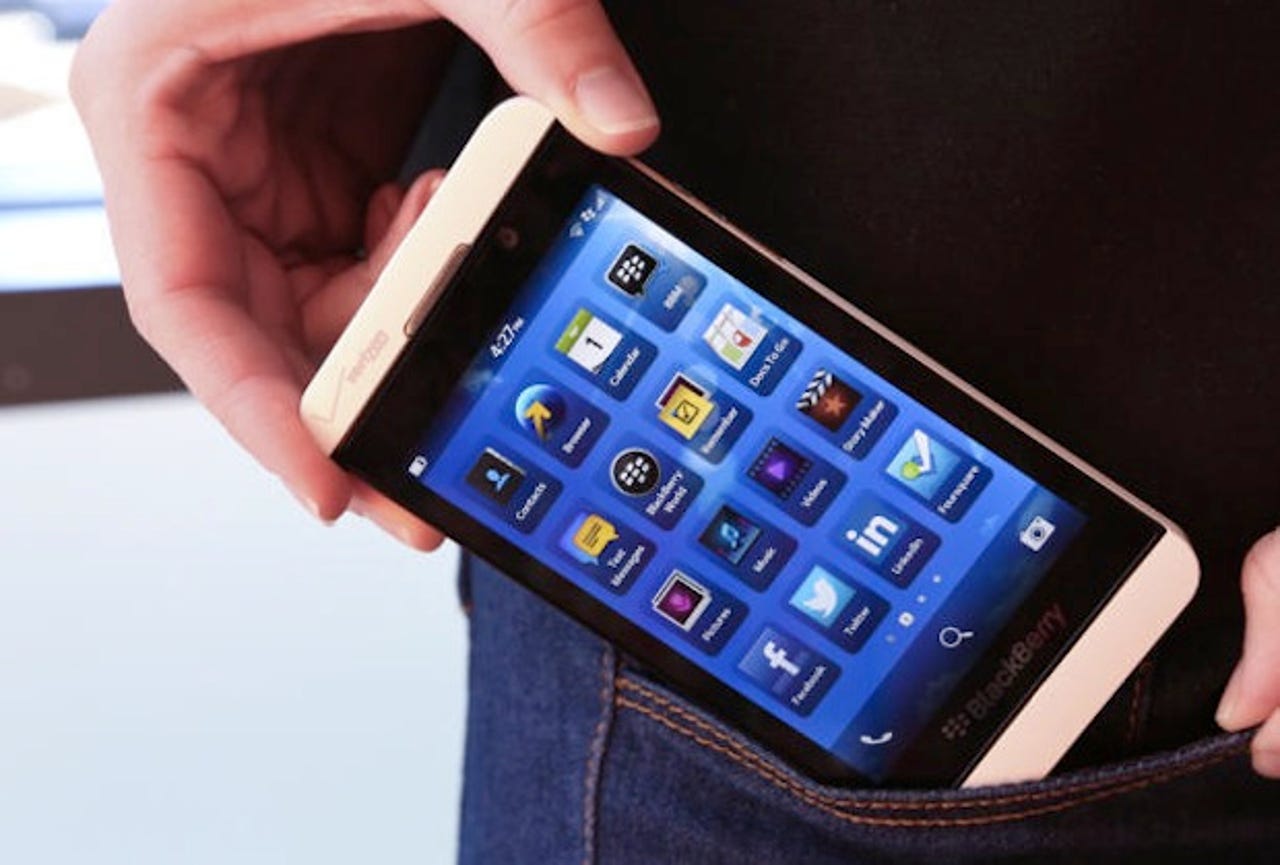How much is BlackBerry worth? By the numbers

BlackBerry may be ripe for breaking up and picking apart than being sold off to a competitor or rival as a whole company, analysts believe.
Earlier this month, BlackBerry's board formed a special committee to determine whether or not it should seek joint ventures or sell off certain key assets, or if it should split up and sell off to the highest bidder. It's part of efforts to both plow on with its BlackBerry 10 efforts while reducing costs over time.
Bloomberg broke out the analyst notes and broke down some of the company's costs.
In short, we have a "breakup" scenario as more likely because as a whole, the company isn't worth as much as if it were split up and sold along in parts. In effect, it could be the same kind of fate that Nortel, another Ontario, Canada-based company, fell to some years ago.
Handset business
BlackBerry has a lot going for it. The one thing it doesn't have going in its favor is its smartphone business. Under a breakup scenario, it has zero value, according to Raymond James analysts.
Five alternative futures for BlackBerry
Its competitors are doing far better in this space, with Windows Phone overtaking BlackBerry in the crucial third-place spot in market share rankings. And, BlackBerry's corporate and enterprise appeal rests on its data network that offers military-grade encrypted communications.
A total wind-down of the division could cost the company about $800 million, or $1.50 per share, according to BMO analyst Tim Long.
Enterprise data infrastructure
According to the Bloomberg piece, IBM made an "informal approach" to buy out BlackBerry's enterprise data infrastructure in 2012, but not the whole company. It follows similar rumors that Samsung (which later denied any such claims) and Lenovo (which said it probably wouldn't either) were reportedly interested in the company's handset business.
Should the company spin out its enterprise data network, the U.S. government — and other allied nations — will want to keep BlackBerry's infrastructure out of Chinese hands. With 72 million smartphone subscribers at the end of June, down from about 80 million in 2012, its secure messaging network could still be worth about $1.2 billion.
Cash reserves
BlackBerry's cash pile has stayed relatively steady over the past year. Instead of dipping into its cash reserves, BlackBerry has cut staff and other resources in a bid to preserve its balance sheet.
The company ended the first quarter with $3.1 billion in cash and investments, a 7 percent increase from the previous quarter. BMO analysts peg the current total to be about $2.8 billion. BlackBerry has not issued debt, and has enough in its reserves to stave off bankruptcy for at least a year.
Patents and intellectual property
MDB Capital chief executive Chris Marlett said in recent weeks that the company is the "last big and current [wireless] portfolio available," which could help secure the firm a good-looking price tag for its stash of about 9,000 patents.
Competing firms, which include Microsoft, Google, Apple, and Samsung, could pay up to $5 billion for the firm if it were bought by a single firm, Marlett said, or between $2-3 billion if it were acquired by a consortium. This can be compared to Nortel, whose assets fetched $7.8 billion for its creditors at its bankruptcy auction in 2009.
In total, what's BlackBerry worth?
By the end of this year, BlackBerry's cash pile may be as low as $2.6 billion. Also, consider patents and intellectual at between $1 billion apiece, or $4 billion in total; the enterprise data network worth about $1.2 billion to the highest bidder; and additional software at $1.5 billion. But, minus the $800 million estimated figure of shuttering its handset business.
In total, the company could be worth between $5.5 billion, or $10.50 per share, or as much as $8.5 billion broken up.
